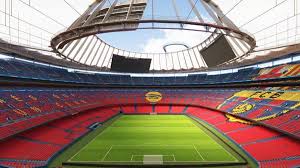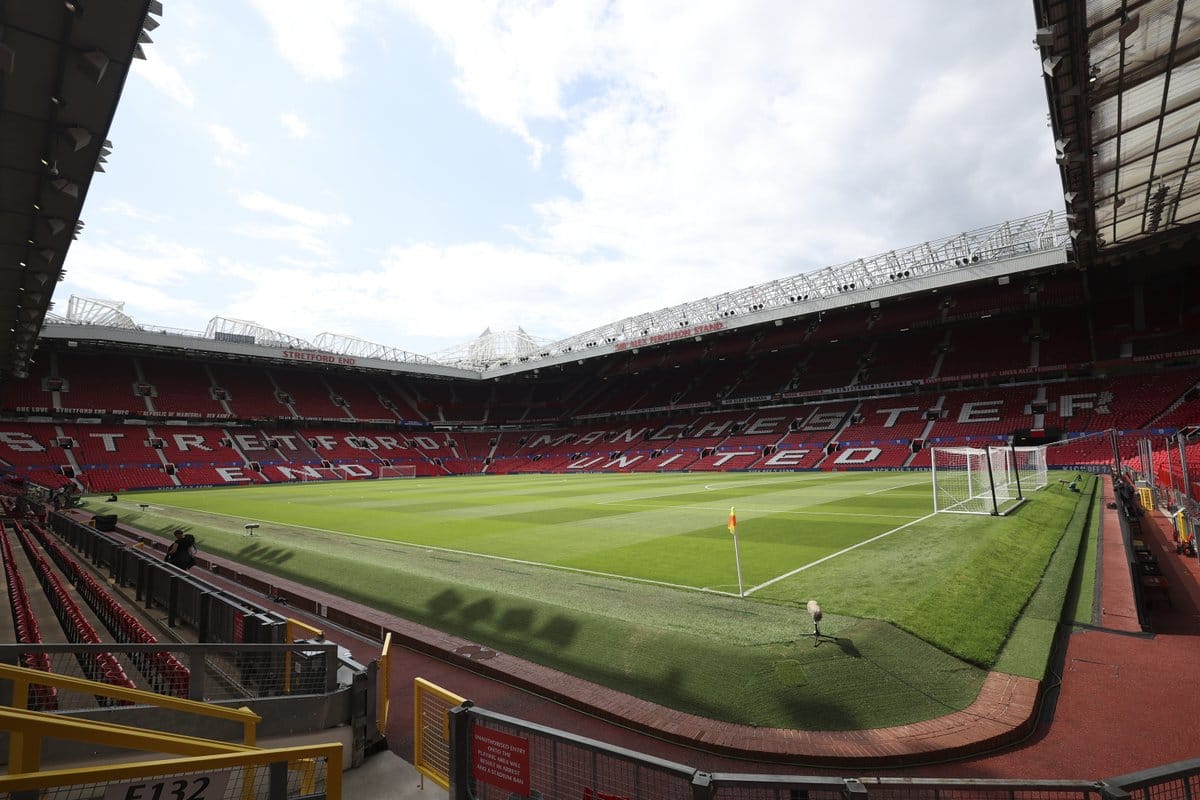The stadium is renowned for its vibrant atmosphere and has hosted countless memorable matches, including UEFA Champions League finals, Copa del Rey matches, and La Liga games. Camp Nou is not just a venue for football; it also represents the rich history and culture of FC Barcelona, embodying the club’s motto, “Més que un club” (More than a club).
In recent years, Camp Nou has been undergoing a major renovation project aimed at modernizing the facilities and enhancing the fan experience. This project includes upgrades to seating, hospitality areas, and overall infrastructure, but it has faced delays, leading to temporary relocations for matches.
Barcelona have set a new goal for their return to Camp Nou following a setback to their ambitious stadium renovation project.
In June 2022, work on modernizing the fabled Camp Nou got underway. The project’s objective was to partially reopen the stadium in time for the club’s 125th anniversary on November 29, 2024, with the intention of making it the largest in European football with a capacity of 105,000. That strategy has now been modified, though, since the most recent club statement indicates that a comeback will only be feasible in the “second half” of the 2024–2025 campaign.
Vice-president Elena Fort gave a status report on the matter during a press conference on Monday, stressing that the club is moving forward even if no dates have been set.
“The dates for going back to the stadium are not set in stone. We’re not sure yet, but we’re headed in the right direction,” she remarked.
According to The Athletic, the club’s new goal is to return to Camp Nou in late January or early February of 2025. The condition imposed by UEFA, which favors teams competing in the Champions League to hold all of their group stage home games at the same location, is one important factor determining the timeframe. January 29, 2025, is the date of Barcelona’s final league home game versus Atalanta. The return schedule could be made more difficult by the requirement for UEFA’s approval for any request to change locations before the league phase ends.
The stadium’s design reflects a modernist architectural style, characterized by its distinctive cantilevered roof and expansive seating. Over the decades, it has undergone various renovations to improve facilities and fan experiences. Its impressive capacity makes it one of the largest stadiums in Europe, often creating an electrifying atmosphere during matches.
In addition to football, Camp Nou has hosted significant events, including concerts and other sports. Its versatility and significance extend beyond just being a football venue. The stadium also features the FC Barcelona Museum, which is one of the most visited museums in Spain. The museum showcases the club’s extensive history, including its numerous trophies, iconic kits, and interactive exhibits that celebrate the club’s rich heritage.
As part of the current renovation project, the club aims to enhance facilities further, including the addition of modern seating, upgraded hospitality areas, and improved accessibility. However, the project has faced several delays due to regulatory approvals and logistical challenges, leading to temporary relocations for matches at the Estadi Olímpic Lluís Companys.
Barcelona has already indicated that they plan to continue using the Montjuic beyond 2024 by extending their rental agreement through March 31, 2025. However, the club’s finances have been impacted by the move to the smaller stadium. Barcelona confirmed in a statement last week that matchday revenue and their well-liked club museum have lost over €100 million (£84 million/$110 million) as a result of the transfer.
In spite of these obstacles, the team is nevertheless dedicated to building a cutting-edge stadium that is in line with its long-term goals. Along with highlighting sustainability and environmental responsibility, the restoration will also take into account larger trends in contemporary sports architecture.
While supporters are awaiting the return of their beloved Camp Nou with great anticipation, some solace may be found in Barcelona’s on-field achievements during this transitional era. With 24 points from their first nine games, three more than Real Madrid, they lead La Liga. They will play their first game back after the international break on October 20 at home against Sevilla.
Both fans and players are getting more and more excited about the renovations’ eventual completion. Many see going back to Camp Nou as a chance to reconnect with the club’s culture and community as well as a chance to physically return to a place they love. Unquestionably, Camp Nou will continue to play a significant role in FC Barcelona’s future, representing the fervor, heritage, and goals of one of the most renowned football teams in the world.












